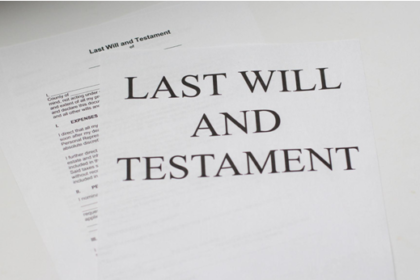
The world of trust and probate is not one that the public often knows anything about until they find themselves with a sick, dying, or already deceased family member.
Our probate attorneys want trust litigation literacy to be available for everyone, so we’ve detailed a little estate planning 101 below. In this blog, we explain the different roles in an estate and probate plan.
When someone dies, they often leave behind a will that dictates what will happen to their bank accounts, property, and belongings. This will is ideally notarized by the testator, also known as the creator, and an attorney, but that’s often only wishful thinking. in Toronto, an attorney does not have to be present in order for a will to be valid.
Toronto probate law only dictates that the person must be over the age of eighteen and of sound mind in order to create a valid will. “Sound mind” generally means that they have not been deemed incompetent in a prior legal proceeding.
A will must be in writing and signed by the testator and by two witnesses. The two witnesses who sign are supposed to be “disinterested,” which means they are not gaining anything through this will. By having a neutral party serve as a witness, Toronto courts prevent undue influence.
Those who are receiving a part of the testator’s assets should not serve as the witnesses, as this can tip off the Toronto courts that the testator may have been pressured into distributing their assets in this way.
A beneficiary is a person who receives something through the will.
The executor is the person named in a will and appointed by the court to read and execute the decisions in the will. Under Toronto law, they receive a percentage of the estate for their labor in dividing the assets.
If you find yourself struggling with any part of a will, whether it’s the creation or the execution, then you need a civil litigation attorney.



